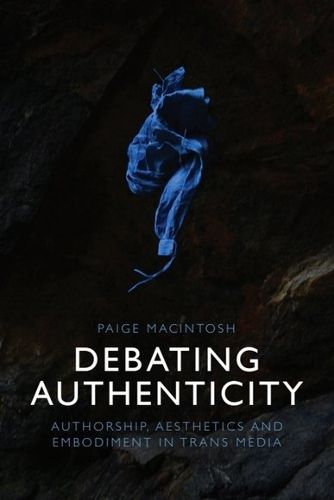Readings Newsletter
Become a Readings Member to make your shopping experience even easier.
Sign in or sign up for free!
You’re not far away from qualifying for FREE standard shipping within Australia
You’ve qualified for FREE standard shipping within Australia
The cart is loading…






Debating Authenticity merges phenomenology, paratextual analysis, genre studies, cultural theory, and trans scholarship to investigate emerging debates regarding trans media's authorship, authenticity, and aesthetics across the first two decades of the twenty-first century. By questioning how trans people, both on-and offscreen, are deployed within mainstream cultural industries as representatives of political and cultural progressiveness Paige Macintosh interrogates consultancy roles and their authorship status. Building on trans scholars' new attention to trans aesthetics, they also consider how scholars might productively counter the charged debates currently informing trans media scholarship by reconsidering the categorisation of trans media and beginning to reroute the power of canonisation from cis industry elites to trans viewers. Looking to genre studies particularly the intersections of gothic horror, science fiction, and spectacle-driven genres like the musical or melodrama Macintosh outlines their own variation of trans aesthetics, one that is capable of countering trans cinemas melancholic tendencies.
$9.00 standard shipping within Australia
FREE standard shipping within Australia for orders over $100.00
Express & International shipping calculated at checkout
Debating Authenticity merges phenomenology, paratextual analysis, genre studies, cultural theory, and trans scholarship to investigate emerging debates regarding trans media's authorship, authenticity, and aesthetics across the first two decades of the twenty-first century. By questioning how trans people, both on-and offscreen, are deployed within mainstream cultural industries as representatives of political and cultural progressiveness Paige Macintosh interrogates consultancy roles and their authorship status. Building on trans scholars' new attention to trans aesthetics, they also consider how scholars might productively counter the charged debates currently informing trans media scholarship by reconsidering the categorisation of trans media and beginning to reroute the power of canonisation from cis industry elites to trans viewers. Looking to genre studies particularly the intersections of gothic horror, science fiction, and spectacle-driven genres like the musical or melodrama Macintosh outlines their own variation of trans aesthetics, one that is capable of countering trans cinemas melancholic tendencies.